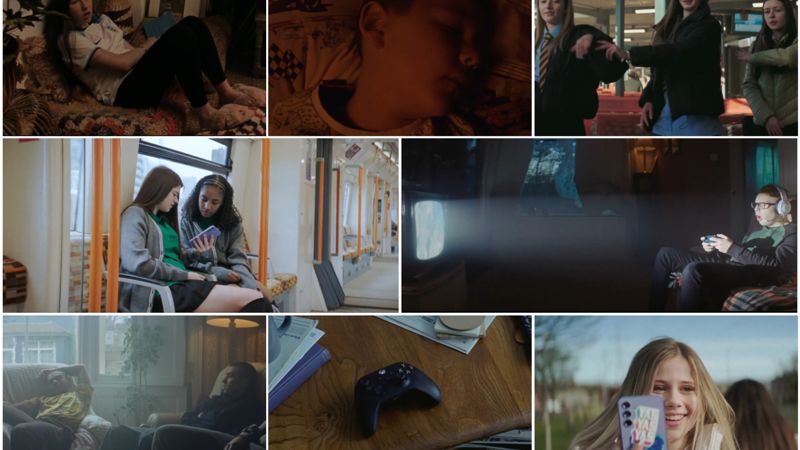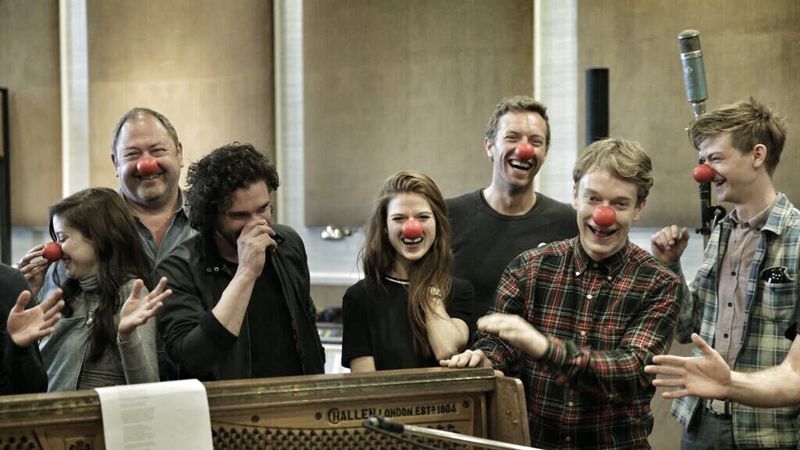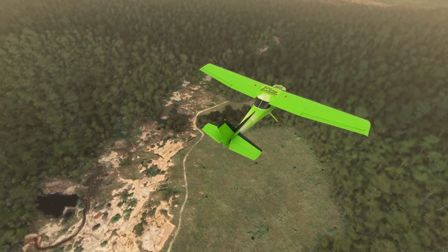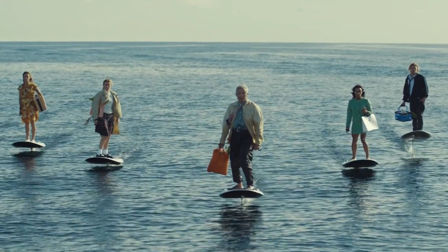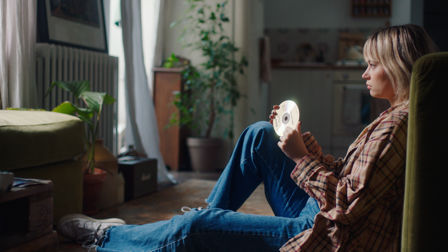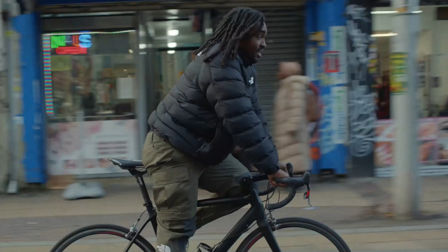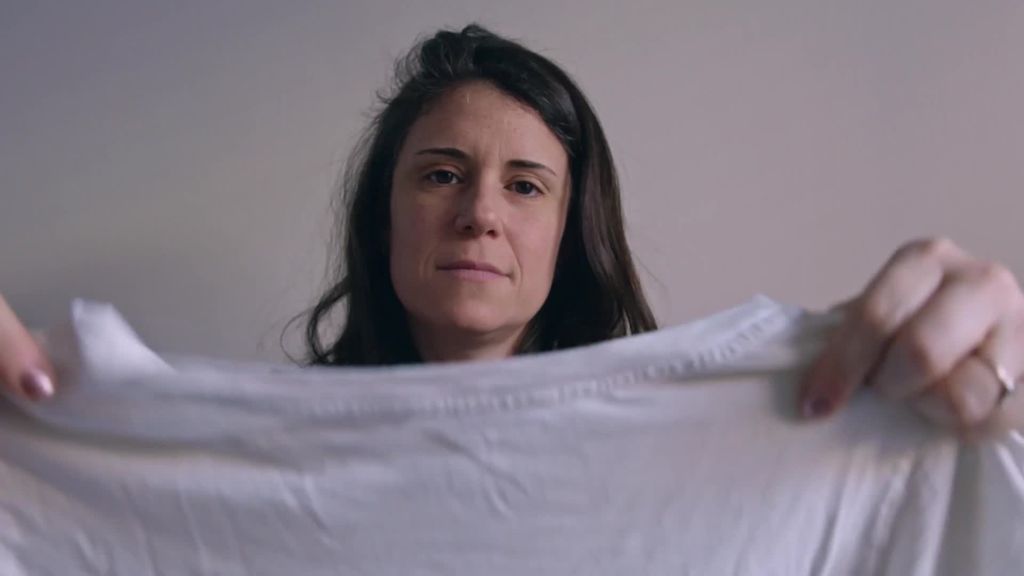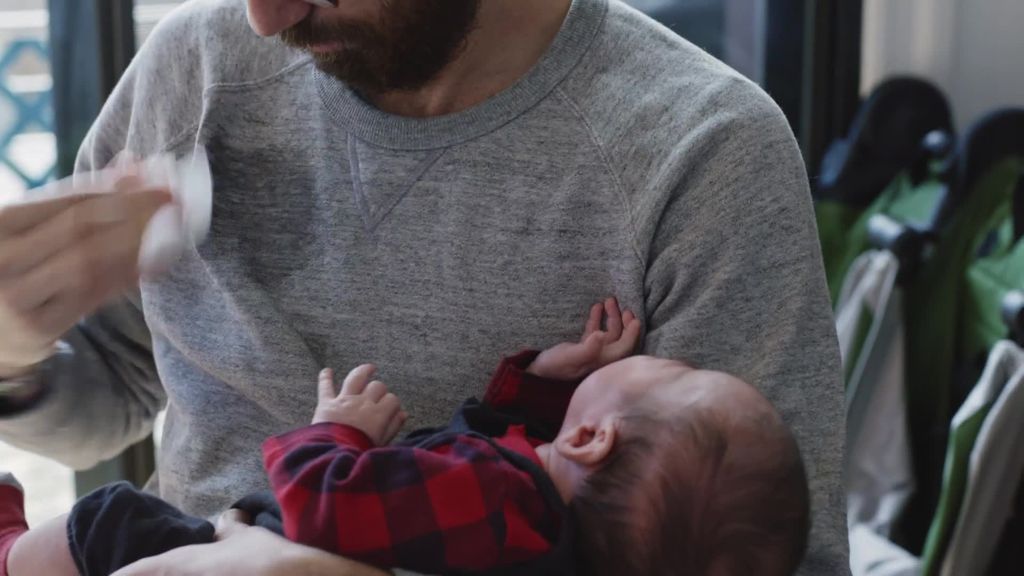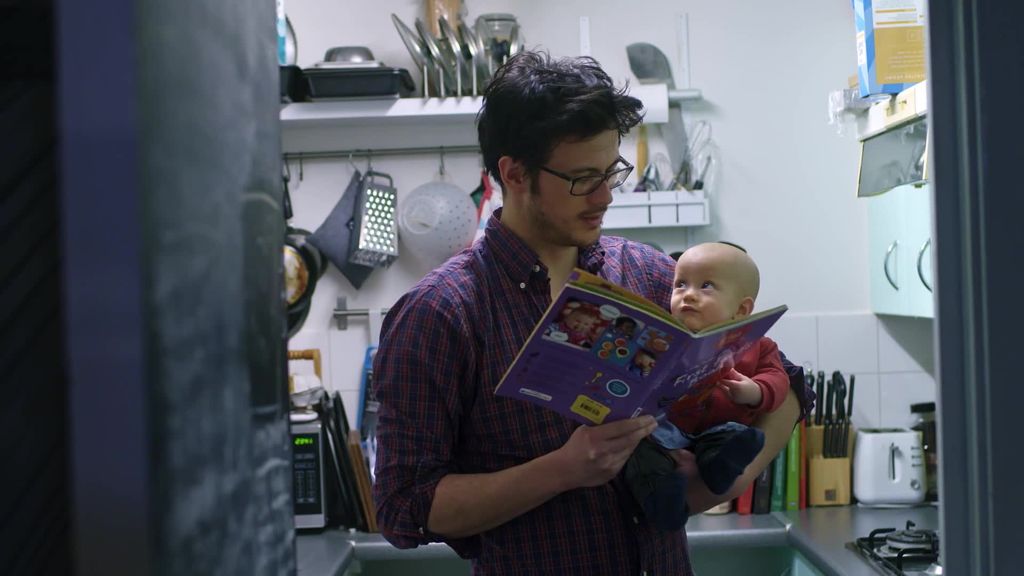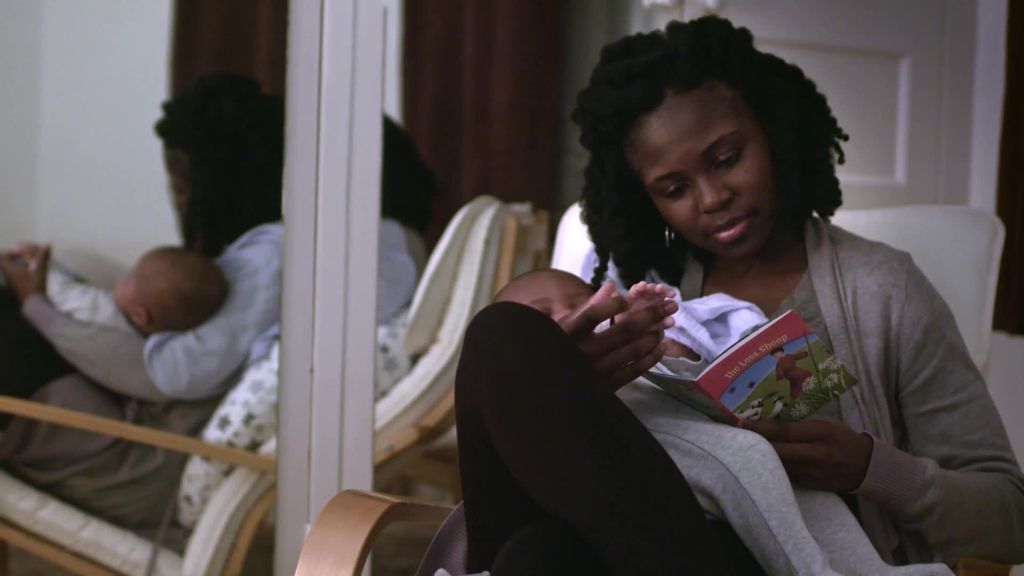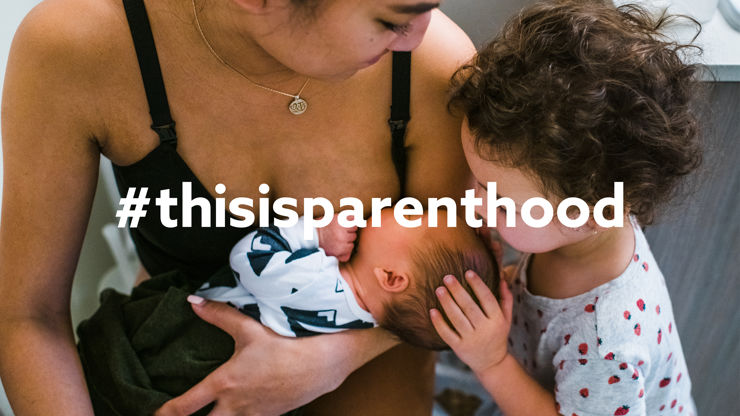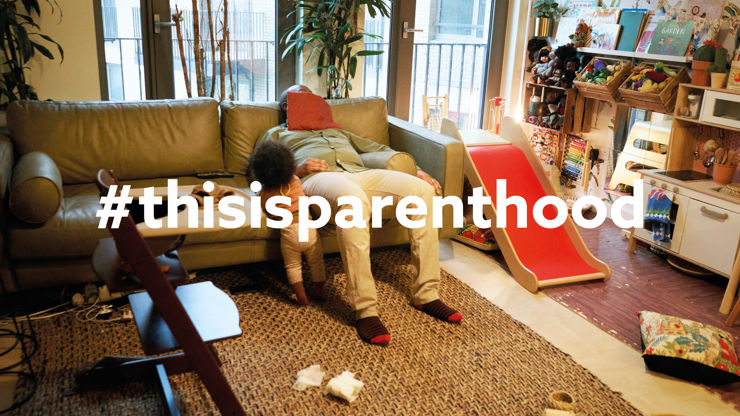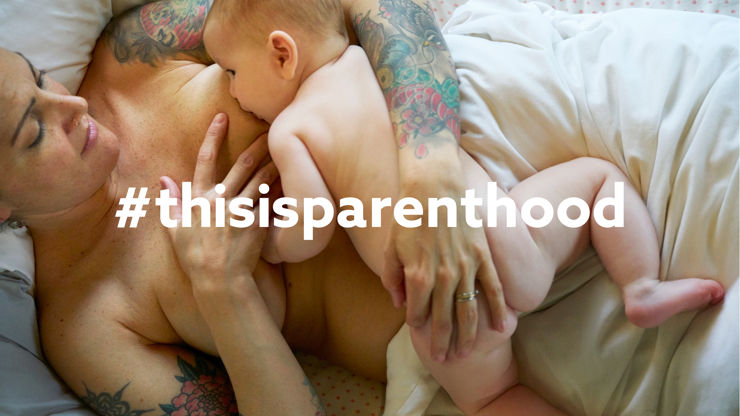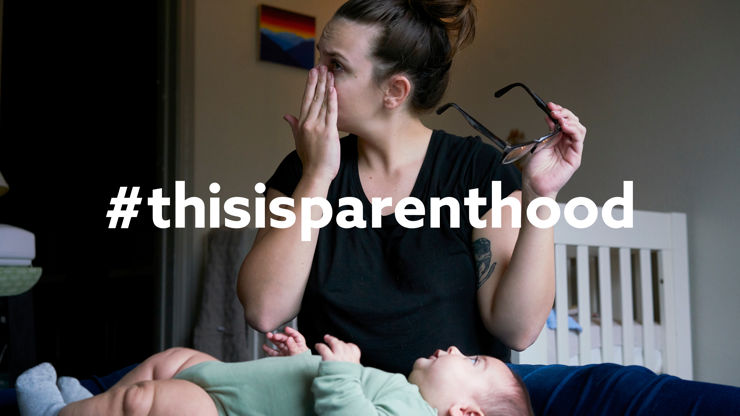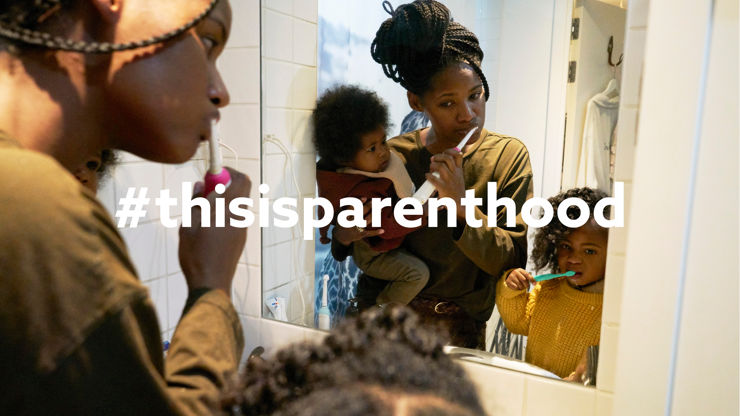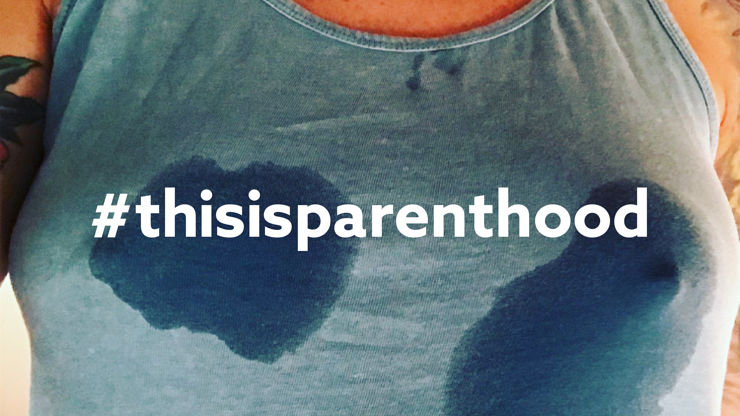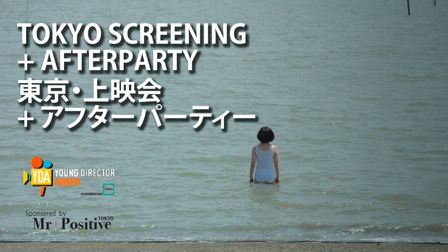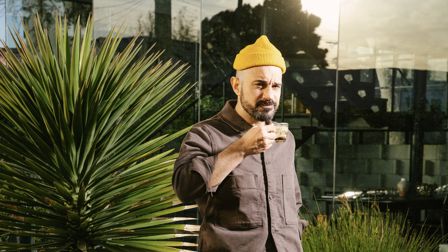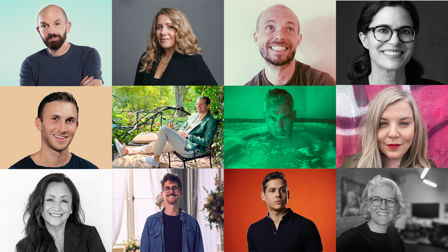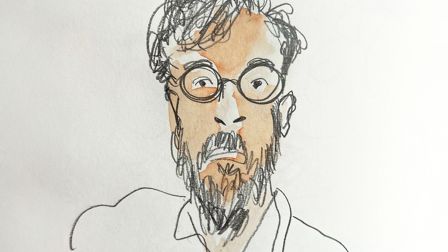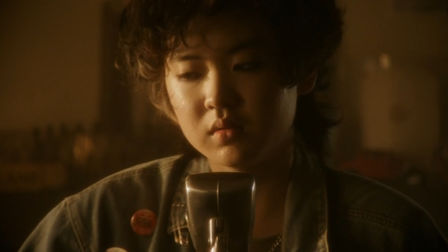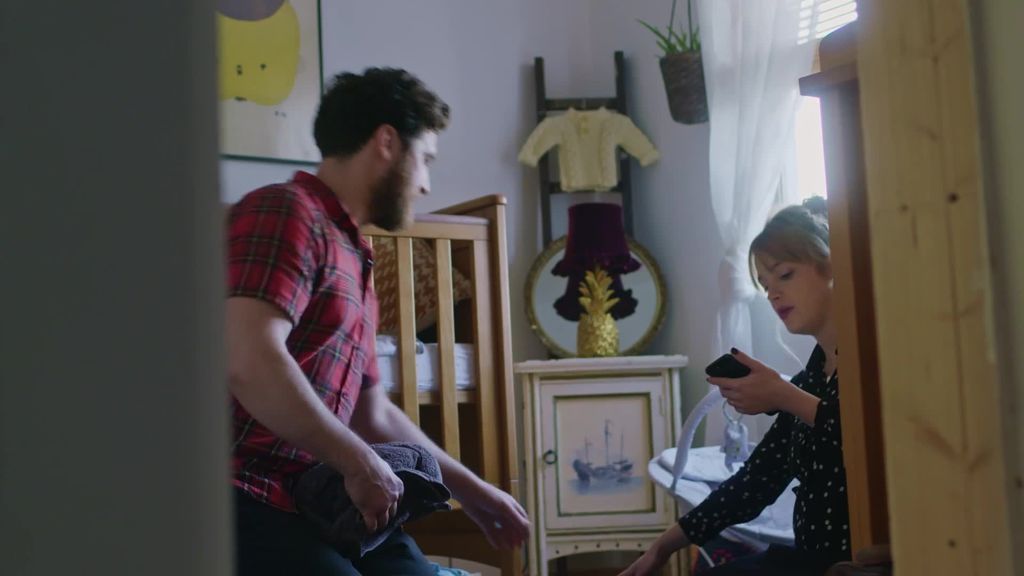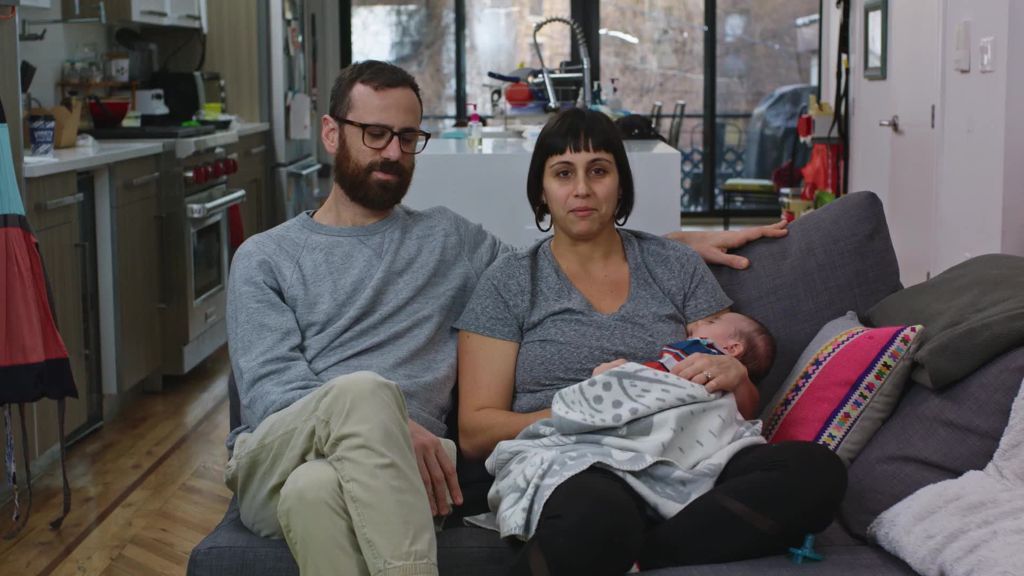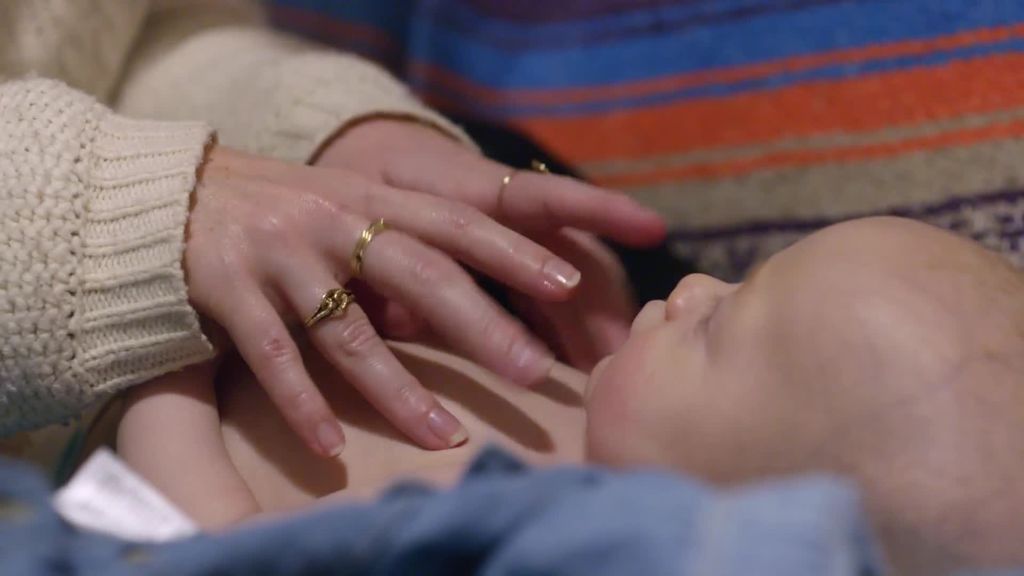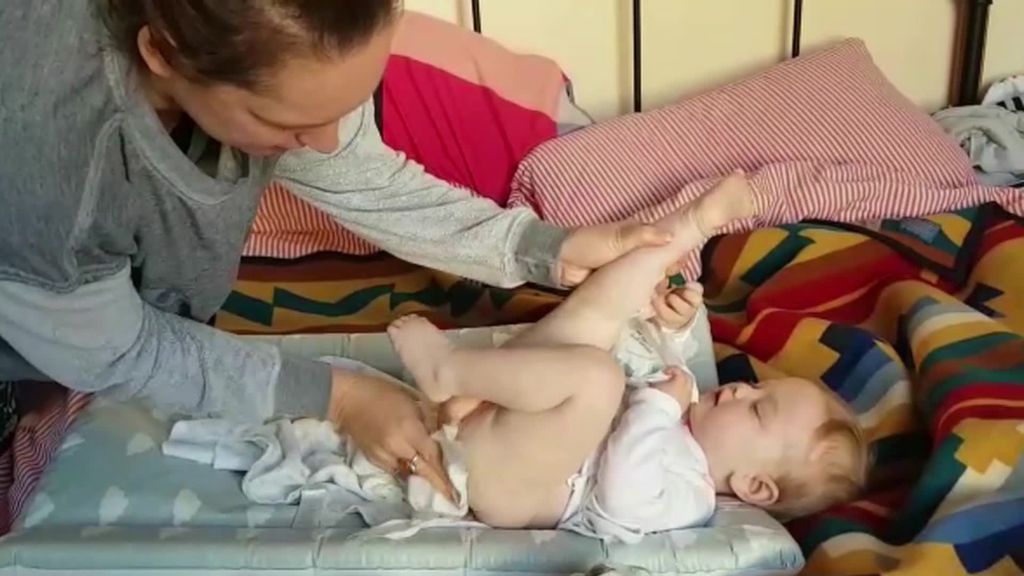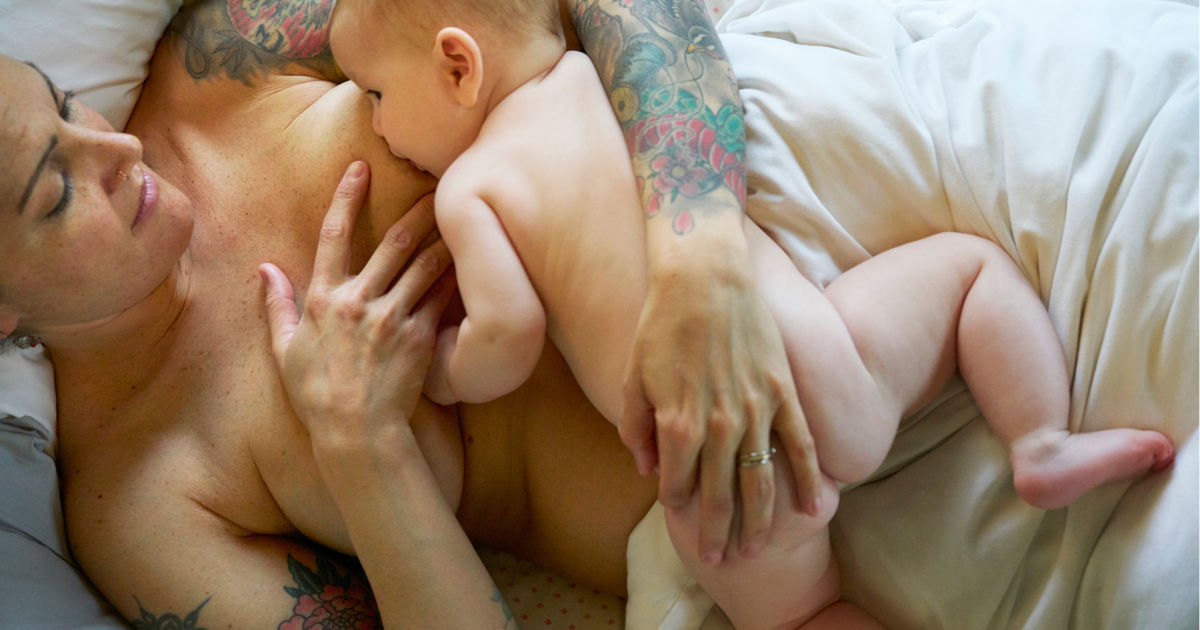WaterWipes tells the truth about parenthood
We talk to agency The Brooklyn Brothers and Pulse Films’ director Lucy Cohen about the beautiful campaign that captures the warts-and-all experience of newborn life in #ThisIsParenthood
Love at first sight. Tiny fingers clasped around a parental digit. Newborns micro-yawning off to sleep. Parent-targeted advertising has an annoying habit of focussing on the glorious joys of newborn life, whilst handily ignoring the sleeplessness, panic, despair, confusing and (sometimes) depression that go hand-in-hand.
In their new global campaign for WaterWipes, creative agency The Brooklyn Brothers have embarked on a mission to document the realities of parenthood. Backed by a startling global study of over 13,000 parents that showed over half of them feel like they’re failing in their first year, the ambitious #ThisIsParenthood project focuses on normalising honest conversations around parenting, covering topics rarely discussed openly such as bonding with baby, relationships between parents, the highs and lows of the first few weeks, and more.
Credits
powered by
- Agency The Brooklyn Brothers/London
- Production Company Pulse Films/London
- Director Lucy Cohen
-
-
Unlock full credits and more with a Source + shots membership.
Credits
powered by
- Agency The Brooklyn Brothers/London
- Production Company Pulse Films/London
- Director Lucy Cohen
- Editor Marshall Street Editors
- Post Production Big Buoy
- Editor Jinx Godfrey
- Editor Spencer Ferszt
- Editor Beth Roberts
- Music Mat Davidson
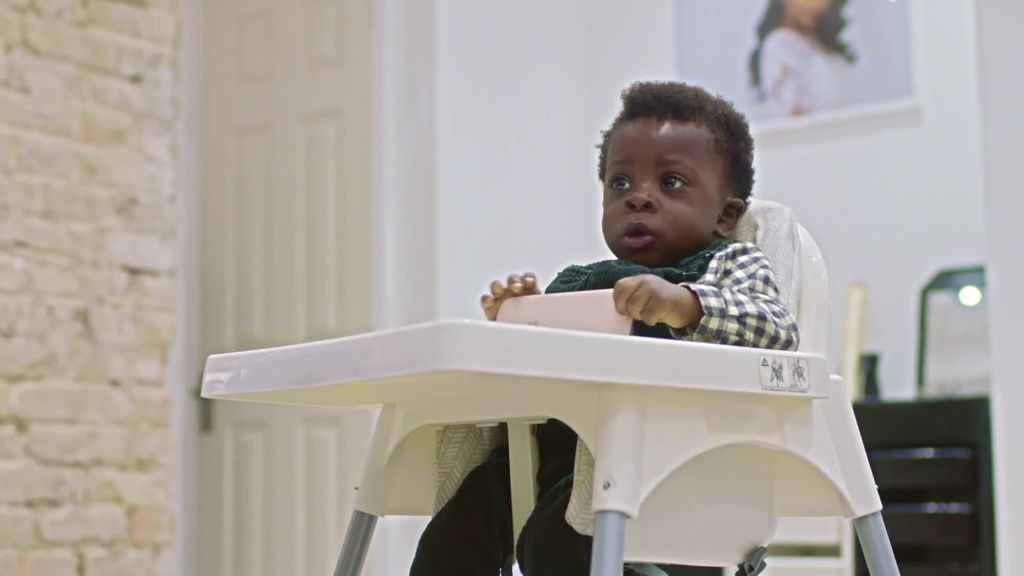
Credits
powered by
- Agency The Brooklyn Brothers/London
- Production Company Pulse Films/London
- Director Lucy Cohen
- Editor Marshall Street Editors
- Post Production Big Buoy
- Editor Jinx Godfrey
- Editor Spencer Ferszt
- Editor Beth Roberts
- Music Mat Davidson
At the heart of the campaign is filmic work from BAFTA-nominated Pulse Films director, Lucy Cohen - presenting a 16-minute documentary and 12 short films in which a variety of parents talk through the highs and lows of their newly-formed families, with heartbreaking insights sitting alongside chucklesome anecdotes.
We though the campaign's honesty was refreshing, perfectly handled and vitally important, so caught some time with Will Sansom (strategy director), Cali Oliver (creative director) and Lucy Cohen to find out how it all came together.
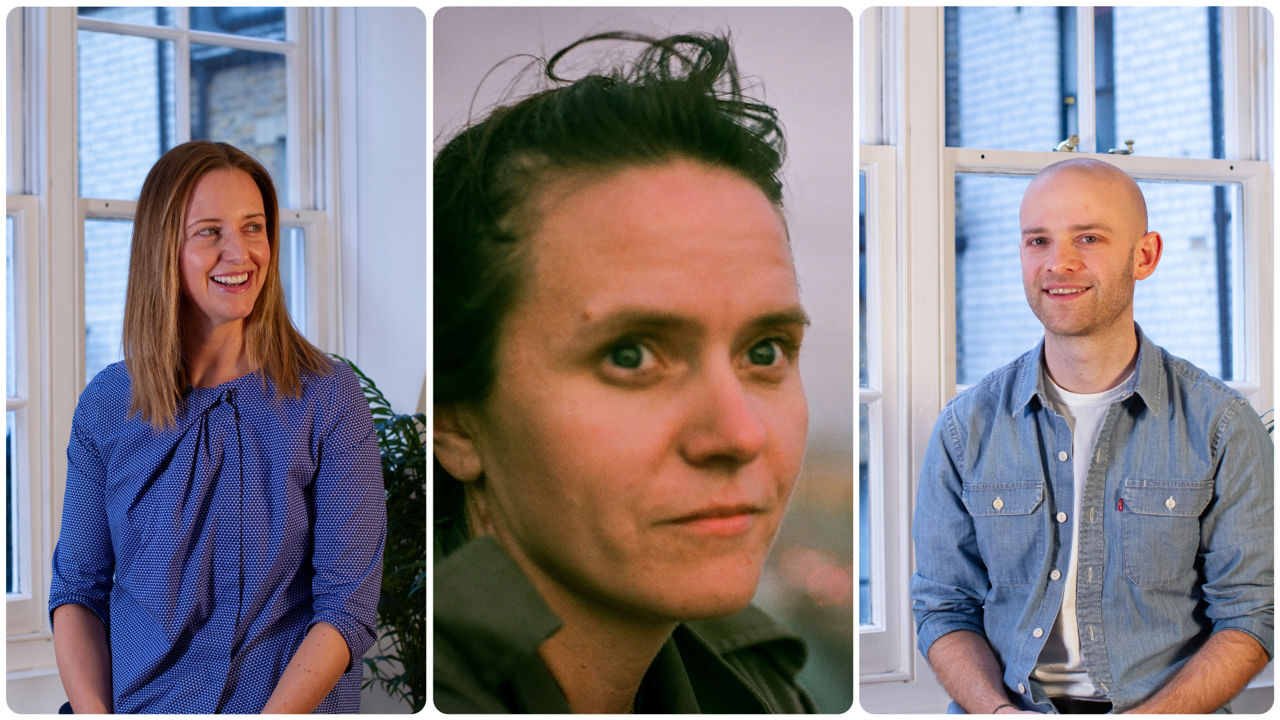
Above: L-R Cali Oliver, Lucy Cohen and Will Sansom
Will Sansom, Strategy Director & Cali Oliver, Creative Director - The Brooklyn Brothers
What was the insight that led to the #thisisparenthood campaign? How did it fit with Water Wipes?
From saccharine ads showing clean, happy and well-rested families to parenting influencers posting ‘aspirational’ lifestyle content on Instagram, the culture and category of baby care both perpetuate a completely unrealistic picture of perfect parenting. We conducted global research that showed us this has a negative impact on new parents – over half feel like they are failing in the first year. It was clear that a more honest conversation around parenthood was needed. Not only is WaterWipes the world’s purest baby wipe, but its brand purpose is rooted in inspiring trust through honesty, so it felt like we had unique credibility to influence positive change in this space.
It was clear that a more honest conversation around parenthood was needed.
What were the early stages in getting the project off the ground? How did you seek out the stories you were going to tell?
Rather than manufacturer a piece of branded content about parenting, we were committed to documenting the lives of real people in the most faithful way possible. This meant taking a leap of faith and allowing their emotional experiences to inform the narrative of our film. However, because the ambition of the project is to empower self-belief in parents, we also identified specific tension points and social taboos that we felt could be challenged through a more honest portrayal of parenting. From bonding and personal identity through to the chaos of weaning, these moments inspired a series of 12 short, shareable films that accompany our hero documentary.
WaterWipes – Bonding
WaterWipes – Early Days
WaterWipes – Dads
WaterWipes – Identity
How did you find Lucy Cohen? What did she bring to the project?
We knew that to create something that could earn a place in culture, we needed a genuine documentary maker rather than a commercial director. Lucy’s work – such as the Bafta-nominated documentary Kingdom of Us – was arresting evidence of her ability to tell human stories in a sensitive but powerful way. But what really sealed the deal was that she shared our creative ambition for the project; as a new mother, she was experiencing the highs and lows of parenting first-hand and knew the importance of having honest, relatable experiences to help through tough times.
In addition to her treatment, she also shared a book that her closest friends made for her just before she gave birth. It was full of frank, funny and profound anecdotes about what being a parent was like. It was at that point that we knew we’d found our director.
We’d love #ThisIsParenthood to become a genuine social movement.
How did you find the families? What were you looking for?
Having a global perspective was important because we wanted to not just tease out cultural nuances in parenting, but most importantly shine a light on the things that parents have in common around the world – hence why we shot with 43 parents across three continents. Then it was about finding people who genuinely connected with the ethos of the campaign and wanted to speak and share their experiences with other parents openly; people who were okay with vulnerability and didn’t feel they needed to project a ‘perfect’ image of parenthood. However, Lucy’s directorial style is to get to know people as she is filming them, so as rigorous as our casting process was, we knew we had to allow room for these relationships to grow as the filming took place.
Did the filming process turn out as you expected? Were there any surprises?
I don’t think things are ever expected when it comes to shooting babies, but embracing the beauty in that chaos was a big part of Lucy’s approach. She also believes in discovering the heart of each parents’ story as she’s shooting, so there had to be an understanding that things could change on a daily basis.
How is the campaign being rolled out?
We’d love #ThisIsParenthood to become a genuine social movement in which parents around the world contribute to a more honest and empowering conversation around real parenting. For this reason, we knew that a traditional broadcast approach wouldn’t work – it’s rare (if ever) that real people feel inspired to share an ad that’s been smeared across social channels.
Our approach was to be completely earned-first – making content designed to live, breathe and grow in the places and spaces that parents go to seek and share inspiration. Our hero documentary will go live on YouTube and Facebook at launch and we’ll be making a concerted effort to drive views of that with additional social assets across platforms such as Instagram – we’d like as many parents as possible to see it! However, all the shorter moments films will also be available on the WaterWipes YouTube channel from launch.
The only above the line element will be a digital out of home placement in Times Square, NYC; but even here we’ve used intimate images of real parents taken from a dedicated photographic shoot that should stand out in stark contrast to the sea of polished advertising fakery that exists there. Similar digital OOH will follow in the UK later this month.
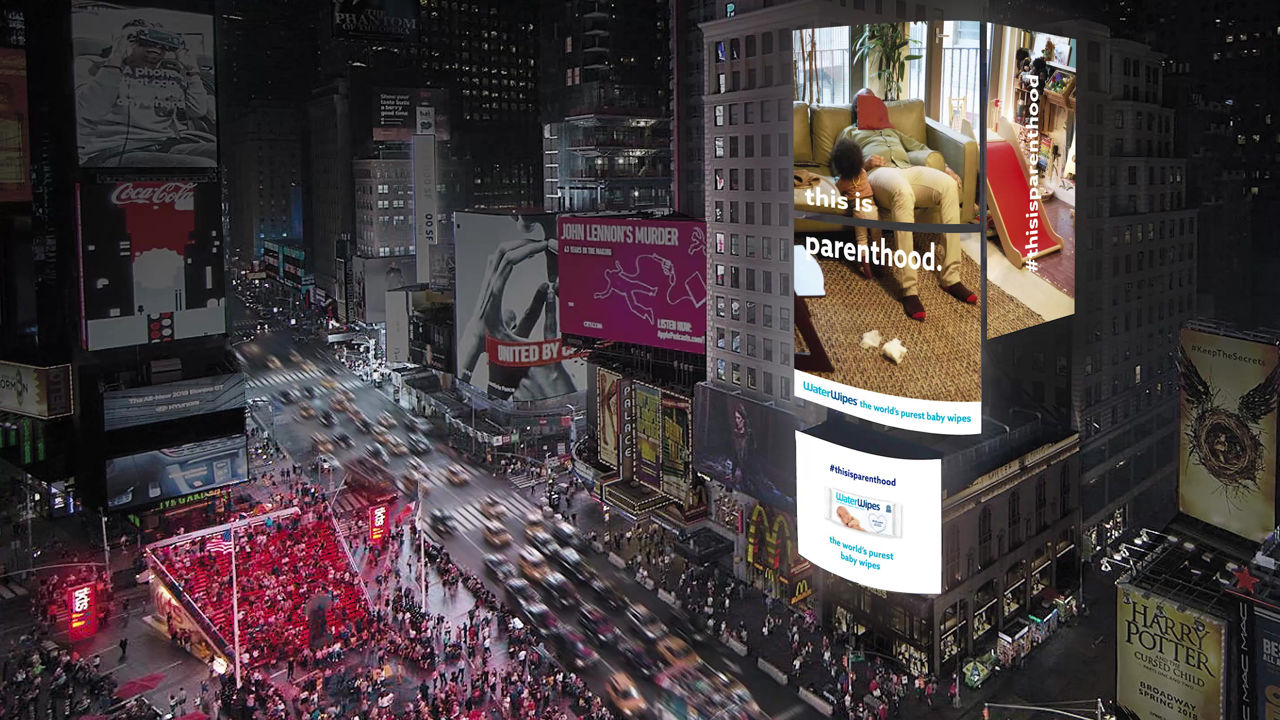
Can we expect further #thisisparenthood stories in the future?
Absolutely. There are additional content and experiential elements of the project that will launch later in the year, but broadly speaking, #ThisIsParenthood is a project that has been designed to grow and evolve - it’s not a campaign with a neat beginning, middle and end.
We’d love for it to be something that builds genuine momentum in culture, so our plan is to see how the conversation develops and collaborate with our audience on what comes next. There’s an inherent uncertainty in that approach, but there’s also something nice about it reflecting the organic nature of the parenting journey.
I don’t think anyone – client or agency-side – would have it any other way.
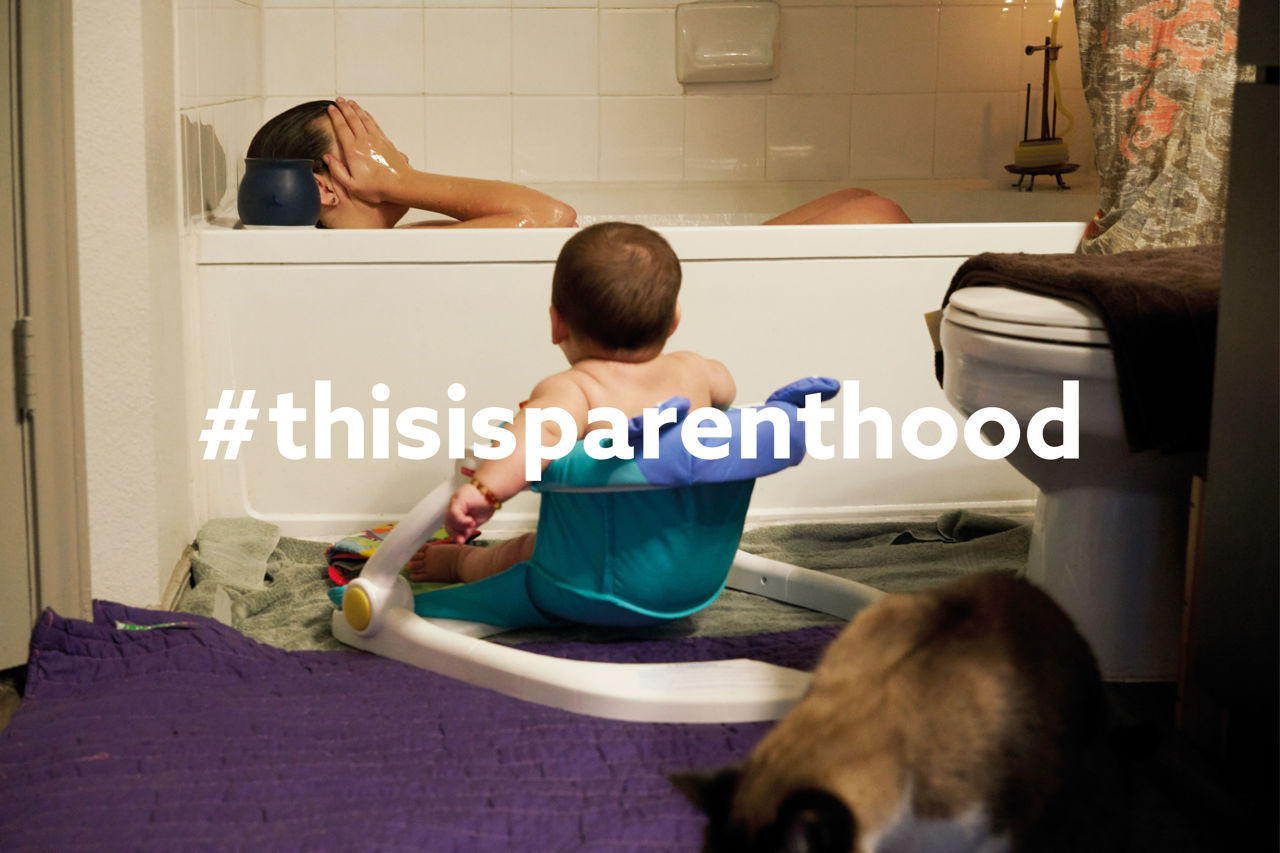
Lucy Cohen, Director - Pulse Films
How did you pitch for this project? What was it about it that made you keen to be involved?
At the time of pitching for the project my son had just turned one. It had been a year full of love, exhaustion, joy, vulnerability, mundanity and exhilaration. There has been a whole spectrum of emotions that had stripped me back to the core. When the brief came along, it seemed to tap into everything that drives me as a filmmaker: honest, intimate and authentic story-telling, but also spoke to me as a parent too.
We wanted to film with parents who were okay with vulnerability and didn’t feel they needed to project a ‘perfect’ image of parenthood.
As I was preparing the treatment, I drew inspiration from a book that my closest friends made for me just before I gave birth. Parents themselves, it was full of frank, funny and profound anecdotes about what being a parent was like. Rather than preaching advice or offering sure-fire solutions, it was a place where I could turn - bleary-eyed and exhausted in the weeks ahead - open its pages and hear the whisper of a friend saying: “don’t worry, you are doing great.” When times are tough, having honest and relatable experiences to connect with is invaluable. The campaign seemed to me the opportunity to offer that.
How was the prep for the shoot(s)? Did you get to know the families along the way?
I got to know the families as much as possible within the time-frame and schedule. However, in observational film-making and even with the interviews I prefer to get to know people as I am filming. The key thing to establish is whether the person would be able to relax and feel comfortable with filming and I was interested in how they articulated their emotions and thought about parenting and the world. Other than this, I prefer not to go too much deeper until the filming is happening as I find it is best to capture thoughts and feelings fresh for the first time. It didn’t really matter so much what the answers to the questions were, but as long as they were truthful and from the heart then that was all that was needed. We also wanted to film with people who genuinely connected with the ethos of the campaign and wanted to speak and share their experiences with other parents openly; Parents who were okay with vulnerability and didn’t feel they needed to project a ‘perfect’ image of parenthood.
Credits
powered by
- Agency The Brooklyn Brothers/London
- Production Company Pulse Films/London
- Director Lucy Cohen
-
-
Unlock full credits and more with a Source + shots membership.
Credits
powered by
- Agency The Brooklyn Brothers/London
- Production Company Pulse Films/London
- Director Lucy Cohen
- Editor Marshall Street Editors
- Post Production Big Buoy
- Editor Jinx Godfrey
- Editor Spencer Ferszt
- Editor Beth Roberts
- Music Mat Davidson
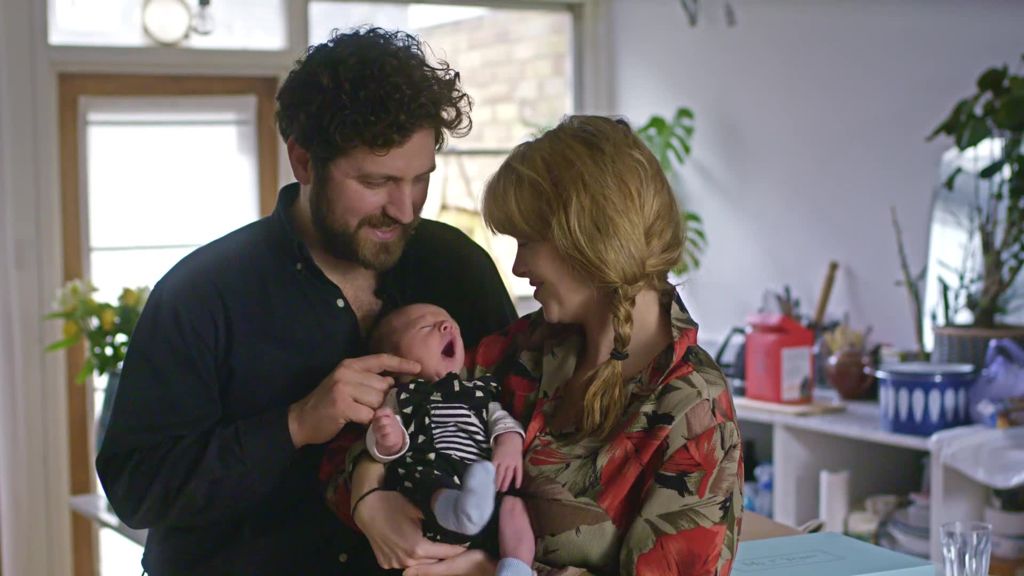
Credits
powered by
- Agency The Brooklyn Brothers/London
- Production Company Pulse Films/London
- Director Lucy Cohen
- Editor Marshall Street Editors
- Post Production Big Buoy
- Editor Jinx Godfrey
- Editor Spencer Ferszt
- Editor Beth Roberts
- Music Mat Davidson
How were the shoots? Were there any surprises?
There are always surprises when filming with babies, as they are notoriously unpredictable. However, that is all part of what we wanted to capture. Also, it is only when I am shooting that I start to understand what the heart of each story could be. I had ideas beforehand based on the research, but in every case these shifted to varying degrees based on what happened or what people said.
For example, when we were filming Elsa and Damien, on the day of the shoot their twins were quite poorly and you could see how stressful and worrying that can be. When Elsa then spoke about a life-threatening situation they had been in soon after giving birth, it really brought focus onto the immense sense of responsibility you feel as a parent and the ripple effects when that has really been put to the test. I guess in all cases you are looking to see how what is happening on the surface is connecting with the emotional undercurrents beneath.
It was the emotional arcs that created the intimacy and really enabled us to feel we were immersed in these worlds.
What was the difference in approach between the single-focus shorts and the longer-form doc? Did anything develop during the edit?
Yes, I think everything shifts again in the edit, especially when you are seeing how the different stories and experiences speak to each other. In general, the shorts were tighter in focus and had been thought-out beforehand, in terms of what form they would take e.g. Interview-based, single character story, home footage - but these evolved too. For example, in the film about Identity, there were two mothers who had very different feelings about what it means to be a parent and how that changes you. I had thought we may have to focus on just one, but in the edit we saw how they could exist in the same film and make it all the more dynamic for it.
I think the biggest shift in the longer film was really a commitment to making it about the emotional experience of parenting. We could have put a focus on dealing with practical parenting struggles e.g. sleep, feeding etc, but it felt as though these things are happening anyway and are quite well documented. It was the emotional arcs that created the intimacy and really enabled us to feel we were immersed in these worlds.
WaterWipes – Pre-Birth
WaterWipes – W.O.E
WaterWipes – Skin
WaterWipes – Relationships
WaterWipes – Nappy Change
What was your favourite moment of the process?
There were so many lovely moments, but I think seeing Laura and Omid with their baby for the first time. We had filmed them before giving birth, with all the excitement and trepidation of what was to come. There was a moment at the end of the day’s shoot once he was born. They were cuddled on the sofa – this brand new family - and seemed so utterly absorbed in their world – very tired and very in love. It was a privilege to be there.
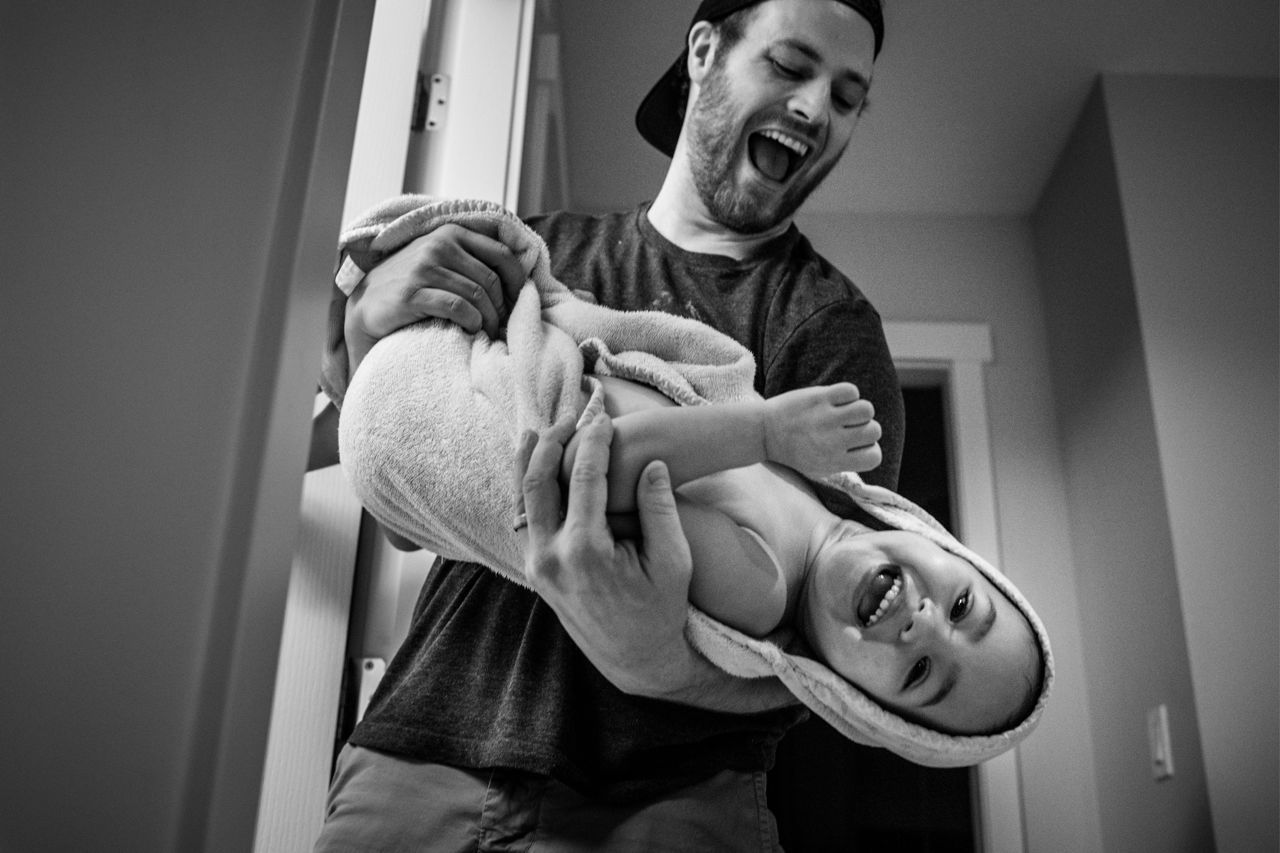
)
